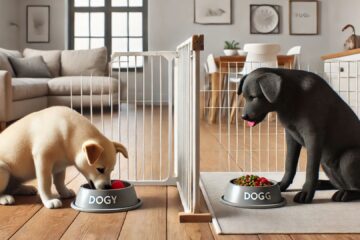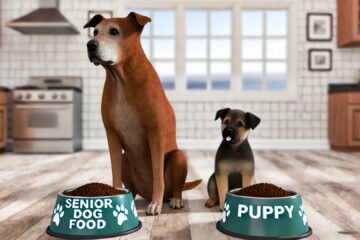As omnivorous animals, pigs have significantly different nutritional needs compared to dogs, and consuming dog food can pose serious health risks for pigs.
It is crucial for pig owners and caretakers to understand the key differences in dietary requirements between dogs and pigs to ensure the well-being and optimal health of their pigs. Feeding an inappropriate diet can lead to a range of health issues, some of which can even be fatal.
Can dog food kill pigs? This blog post will explore the potential risks and dangers of feeding dog food to pigs, addressing the central question of whether dog food can be lethal for pigs.
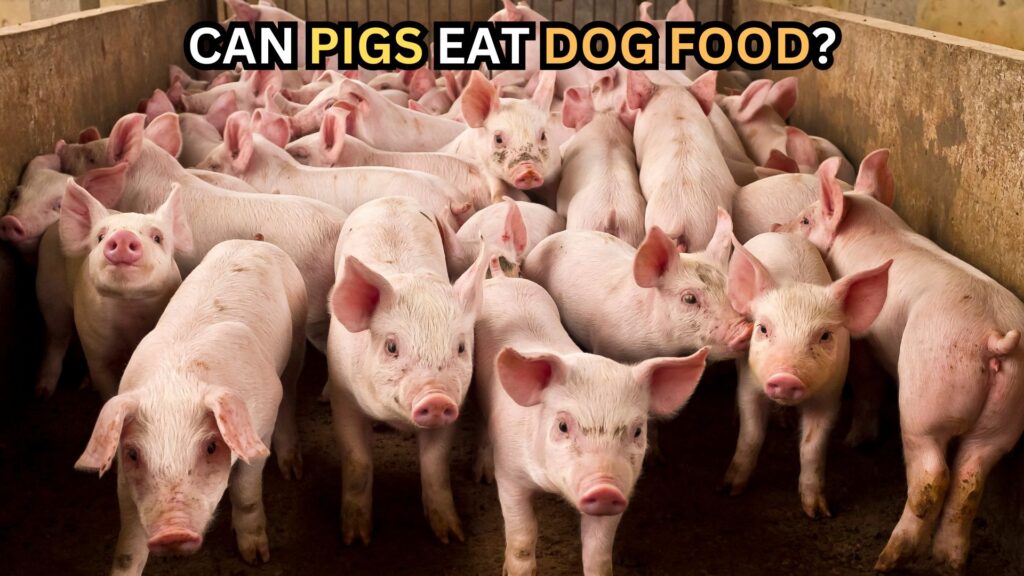
Nutritional Differences Between Dogs and Pigs
Dogs are carnivores, with a dietary requirement that is primarily focused on protein, fat, and certain essential vitamins and minerals. Their diets typically consist of meat, poultry, fish, and sometimes grains or vegetables.
Pigs are omnivores, with a more diverse nutritional profile that includes carbohydrates, proteins, fats, vitamins, and minerals. Pigs require a balanced diet that includes grains, legumes, fruits, vegetables, and in some cases, limited amounts of animal-based proteins.
Dog food is formulated to meet the specific nutritional needs of dogs, which can differ significantly from the requirements of pigs.
For example, dog food often contains higher levels of protein and fat, as well as different vitamin and mineral compositions, which can be problematic if fed to pigs.
Potential Risks of Feeding Dog Food to Pigs
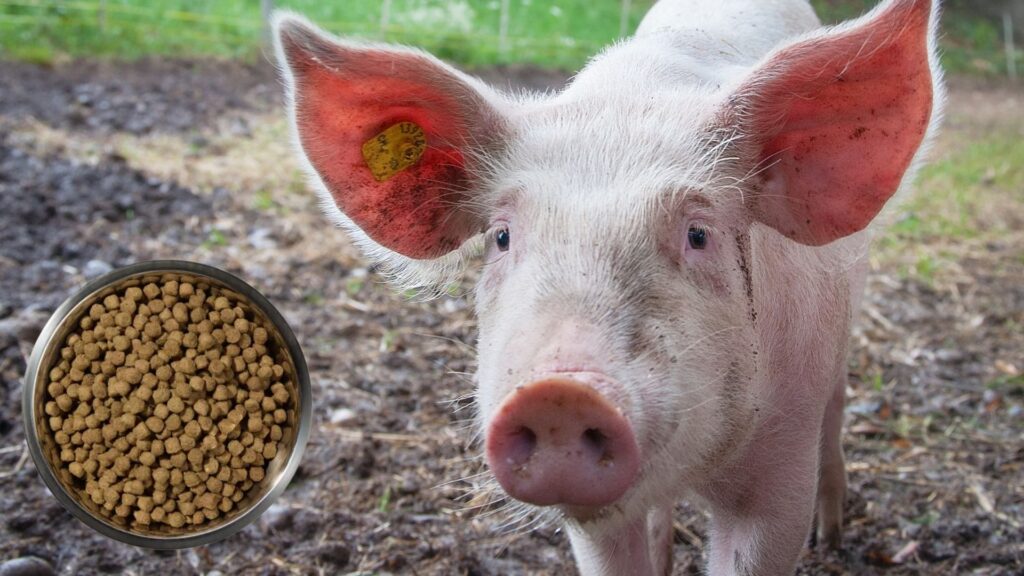
Toxicity of certain ingredients in dog food for pigs
Dog food typically contains higher levels of protein and fat than what is recommended for pigs. Consuming an excess of these nutrients can lead to various health issues, such as liver and kidney problems, pancreatitis, and even death.
Some dog treats and some dog foods contain xylitol, an artificial sweetener that is highly toxic to pigs, even in small amounts. Xylitol can cause a dangerous drop in blood sugar levels and liver damage in pigs.
Digestibility issues and gastrointestinal problems:
The ingredients and formulation of dog food are not optimized for pigs’ digestive systems. Feeding dog food to pigs can result in digestive issues, such as diarrhea, vomiting, and abdominal pain, as their bodies struggle to properly process the inappropriate nutrients.
Nutrient deficiencies and imbalances:
Dog food is lacking in certain essential vitamins, minerals, and other nutrients that pigs require for optimal health.
Feeding dog food to pigs can lead to nutrient deficiencies, which can cause a range of health problems, including poor growth, weakened immune systems, and reproductive issues.
Safer Alternatives to Dog Food for Pigs
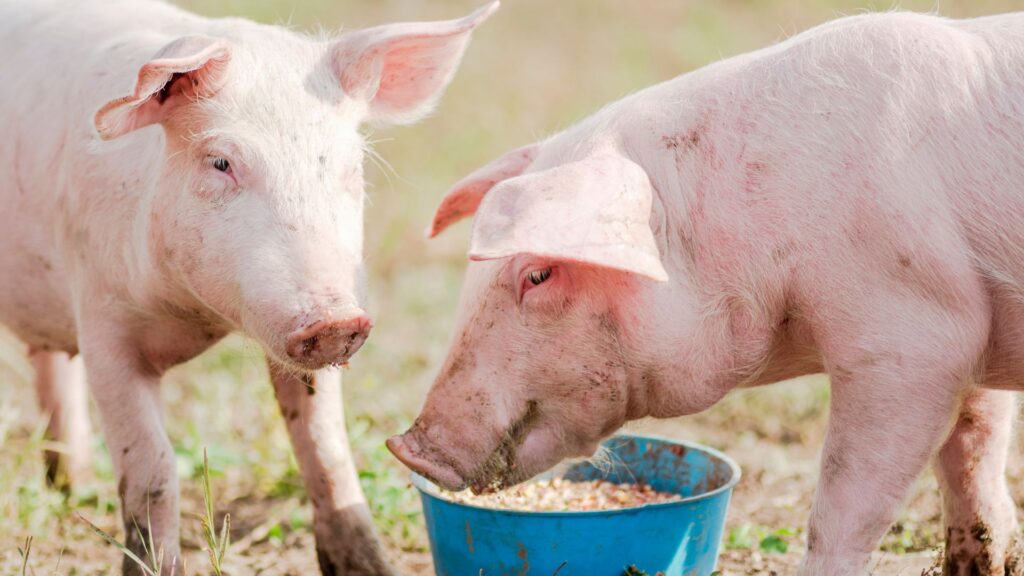
Recommended pig-specific feed and supplements
Pigs require a balanced diet that is specifically formulated to meet their nutritional needs. The recommended feed for pigs should be primarily composed of grains, such as corn, barley, or sorghum, along with protein sources like soybean meal, alfalfa, or fish meal.
Additionally, pigs may benefit from supplements to ensure they are receiving all the necessary vitamins, minerals, and other essential nutrients.
It’s important to consult with a veterinarian or livestock specialist to determine the appropriate feed and supplement regimen for your pigs.
Homemade pig feed recipes and guidelines
For pig owners who prefer a more customized approach, homemade pig feed can be a viable option. However, it is crucial to ensure that the homemade feed provides a complete and balanced nutrition profile.
Typical homemade pig feed recipes may include a combination of grains, legumes, vegetables, and limited amounts of animal-based proteins.
When preparing homemade feed, it is essential to follow precise guidelines to maintain the appropriate nutrient ratios and avoid potential deficiencies or imbalances.
Considerations for transitioning pigs to a new diet
Transitioning pigs to a new diet, whether it’s a commercial pig-specific feed or a homemade recipe, should be done gradually to avoid gastrointestinal distress and other health problems.
It’s recommended to introduce the new feed in small amounts, gradually increasing the proportion over the course of 7-14 days.
Closely monitor your pigs’ reaction and adjust the transition process as needed to ensure a smooth and successful dietary change.
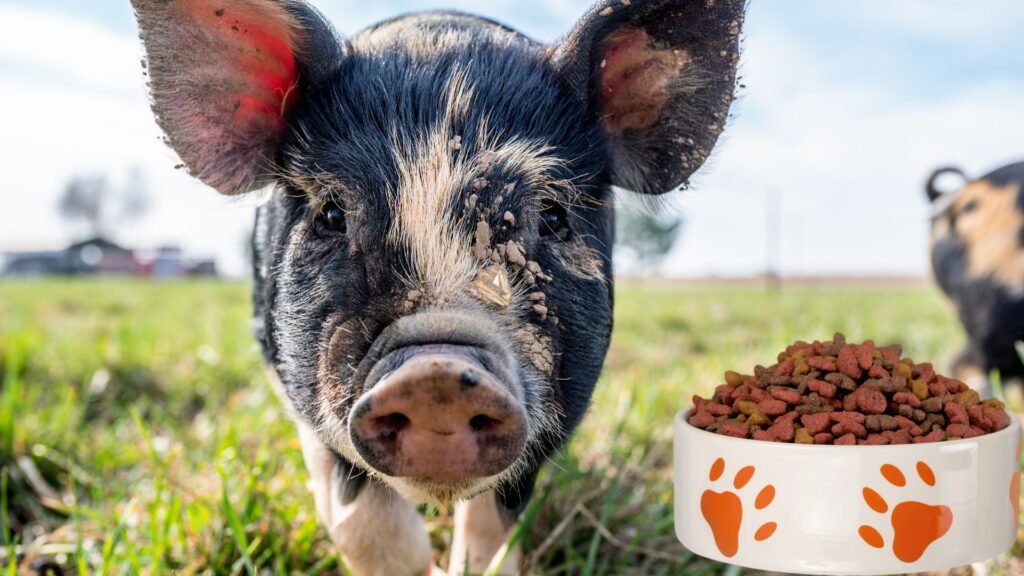
Conclusion
In summary, feeding dog food to pigs can be extremely dangerous and even life-threatening. Dog food contains ingredients that are toxic to pigs, such as excess protein and fat, artificial sweeteners, and certain vegetables.
Consuming dog food can also lead to digestibility issues, nutrient deficiencies, and imbalances, all of which can have severe consequences for the health and well-being of pigs.
Providing pigs with a balanced, species-appropriate diet is crucial for their overall health and thriving. Pigs have unique nutritional requirements that differ significantly from dogs, and it is essential to ensure that their dietary needs are met through the use of pig-specific feed and supplements.
Given the complexity of pigs’ nutritional needs and the potential risks associated with feeding them an inappropriate diet, it is highly recommended that pig owners and caretakers consult with a veterinarian or livestock specialist.
These professionals can provide personalized guidance on the best feeding practices, diet formulations, and transitioning strategies to ensure the long-term health and well-being of your pigs.
FAQs
Can a pig eat a small amount of dog food occasionally?
No, it is not recommended for pigs to consume any amount of dog food, even occasionally. The ingredients and nutrient composition of dog food can be highly toxic and detrimental to pigs, even in small quantities.
Pigs should be fed a diet that is specifically formulated to meet their nutritional requirements.
What are the signs of dog food toxicity in pigs?
Signs of dog food toxicity in pigs may include vomiting, diarrhea, lethargy, loss of appetite, abdominal pain, and in severe cases, seizures, organ failure, and even death.
If you suspect your pig has consumed dog food and is exhibiting any of these symptoms, it is essential to seek immediate veterinary attention.
Can pigs eat commercial dog treats or biscuits?
No, pigs should not consume commercial dog treats or biscuits, as they often contain the same potentially toxic ingredients found in dog food, such as xylitol, onions, and garlic.
These products are formulated for the nutritional needs of dogs and can be harmful to pigs.
How can I tell if my pig’s current diet is appropriate?
To determine if your pig’s current diet is appropriate, it is best to consult with a veterinarian or livestock specialist.
They can evaluate your pig’s overall health, weight, and growth, as well as the specific composition of their feed, to ensure that all nutritional requirements are being met.
Signs of an inappropriate diet may include poor growth, dull coat, lethargy, or digestive issues.
